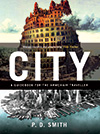Proust and the Squid
14 April 2008 | Maryanne Wolf, Reviewing, Science & literature, Steven Poole, Theroux | Post a comment
Proust and the Squid by cognitive neuroscientist Maryanne Wolf is an inspiring celebration of the science of reading. In evolutionary terms, reading is a recently acquired cultural invention that uses existing brain structures for a radically new skill. Unlike vision or speech, there is no direct genetic programme passing reading on to future generations. It is an unnatural process that has to be learnt by each individual.
Wolf's fascinating book shows how evolutionary history and cognitive neuroscience are casting new light on "the complex beauty of the reading process". In particular, she highlights the brain's astonishing plasticity, its "protean capacity" to forge new links and reorganise itself to learn new skills: we are all born with the "capacity to change what is given to us by nature ... We are, it would seem from the start, genetically poised for breakthroughs".
You can read my review of Proust and the Squid for the Guardian here.
In the same issue I also review Paul Theroux's wonderful gonzo travelogue The Great Railway Bazaar, just re-issued by Penguin, and The Archimedes Codex: Revealing the Blueprint of Modern Science, by Reviel Netz and William Noel, the compelling account of how scholars and scientists have revealed the contents of the oldest surviving Greek manuscript of Archimedes. Read those here.
While you're over at the Guardian Review, Steven Poole's piece on Andrew Crumey's Sputnik Caledonia is also well worth reading. According to Poole:
"Science fiction makes you think of spaceships, magical technology, visionary futurism. Yet 'science fiction' might also be a good name for a kind of fiction that contains no robots or galactic battles but simply engages with science on a deeper and more authoritative level than your average novelist who borrows a vague understanding of quantum mechanics as a little moondust to sprinkle over the story."
One of the characters in the novel comments: "Go to any of our universities and you will find physicists who think they have no need of Shelley, or novelists who suppose they can live without Newton." As Poole says, "against this state of affairs, Sputnik Caledonia stands, in all its curious ambiguity, as a kind of manifesto." It's certainly going on my wish list.

